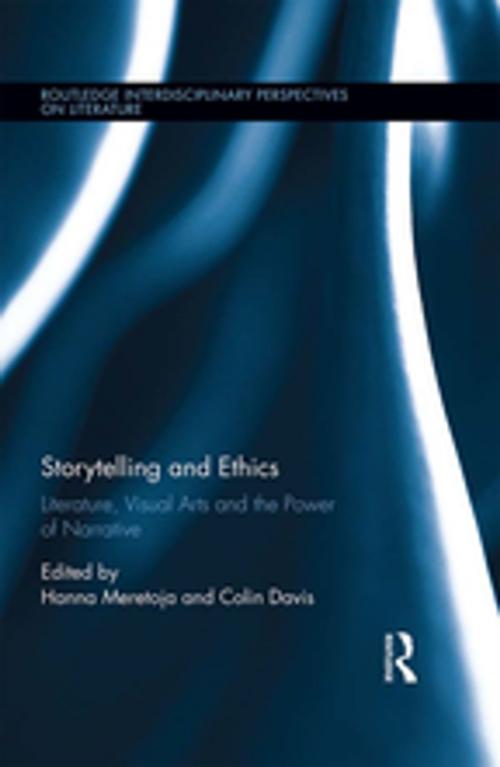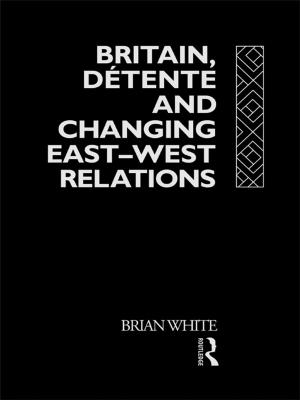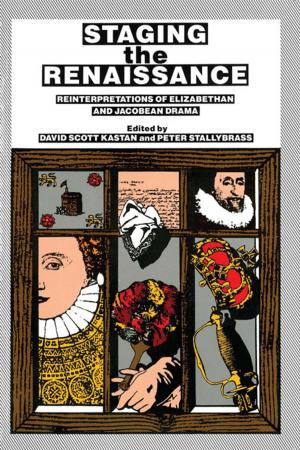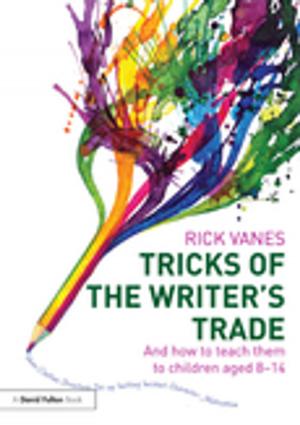Storytelling and Ethics
Literature, Visual Arts and the Power of Narrative
Nonfiction, Religion & Spirituality, Philosophy, Ethics & Moral Philosophy, Fiction & Literature, Literary Theory & Criticism| Author: | ISBN: | 9781351965774 | |
| Publisher: | Taylor and Francis | Publication: | September 18, 2017 |
| Imprint: | Routledge | Language: | English |
| Author: | |
| ISBN: | 9781351965774 |
| Publisher: | Taylor and Francis |
| Publication: | September 18, 2017 |
| Imprint: | Routledge |
| Language: | English |
In recent years there has been a huge amount of both popular and academic interest in storytelling as something that is an essential part of not only literature and art but also our everyday lives as well as our dreams, fantasies, aspirations, historical self-understanding, and political actions. The question of the ethics of storytelling always, inevitably, lurks behind these discussions, though most frequently it remains implicit rather than explicit. This volume explores the ethical potential and risks of storytelling from an interdisciplinary perspective. It stages a dialogue between contemporary literature and visual arts across media (film, photography, performative arts), interdisciplinary theoretical perspectives (debates in narrative studies, trauma studies, cultural memory studies, ethical criticism), and history (traumatic histories of violence, cultural history). The collection analyses ethical issues involved in different strategies employed in literature and art to narrate experiences that resist telling and imagining, such as traumatic historical events, including war and political conflicts. The chapters explore the multiple ways in which the ethics of storytelling relates to the contemporary arts as they work with, draw on, and contribute to historical imagination. The book foregrounds the connection between remembering and imagining and explores the ambiguous role of narrative in the configuration of selves, communities, and the relation to the non-human. While discussing the ethical aspects of storytelling, it also reflects on the relevance of artistic storytelling practices for our understanding of ethics. Making an original contribution to interdisciplinary narrative studies and narrative ethics, this book both articulates a complex understanding of how artistic storytelling practices enable critical distance from culturally dominant narrative practices, and analyzes the limitations and potential pitfalls of storytelling.
In recent years there has been a huge amount of both popular and academic interest in storytelling as something that is an essential part of not only literature and art but also our everyday lives as well as our dreams, fantasies, aspirations, historical self-understanding, and political actions. The question of the ethics of storytelling always, inevitably, lurks behind these discussions, though most frequently it remains implicit rather than explicit. This volume explores the ethical potential and risks of storytelling from an interdisciplinary perspective. It stages a dialogue between contemporary literature and visual arts across media (film, photography, performative arts), interdisciplinary theoretical perspectives (debates in narrative studies, trauma studies, cultural memory studies, ethical criticism), and history (traumatic histories of violence, cultural history). The collection analyses ethical issues involved in different strategies employed in literature and art to narrate experiences that resist telling and imagining, such as traumatic historical events, including war and political conflicts. The chapters explore the multiple ways in which the ethics of storytelling relates to the contemporary arts as they work with, draw on, and contribute to historical imagination. The book foregrounds the connection between remembering and imagining and explores the ambiguous role of narrative in the configuration of selves, communities, and the relation to the non-human. While discussing the ethical aspects of storytelling, it also reflects on the relevance of artistic storytelling practices for our understanding of ethics. Making an original contribution to interdisciplinary narrative studies and narrative ethics, this book both articulates a complex understanding of how artistic storytelling practices enable critical distance from culturally dominant narrative practices, and analyzes the limitations and potential pitfalls of storytelling.















